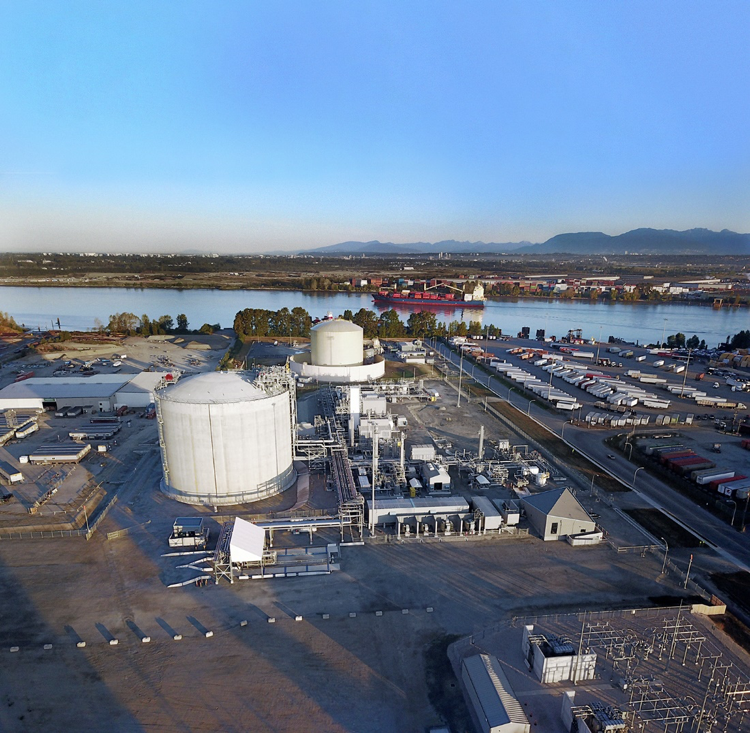A Canadian LNG leader: FortisBC [Promoted]
 The push for ever-cleaner energy sources around the world is crucial, because greenhouse gases aren’t an issue we can just tackle locally—we all need to think globally. How can we help China and other countries transition from coal? How can we help remote areas like Canada’s Yukon Territory transition from diesel power generation?
The push for ever-cleaner energy sources around the world is crucial, because greenhouse gases aren’t an issue we can just tackle locally—we all need to think globally. How can we help China and other countries transition from coal? How can we help remote areas like Canada’s Yukon Territory transition from diesel power generation?
LNG has a key role to play in answering that question.
|
Advertisement: The National Gas Company of Trinidad and Tobago Limited (NGC) NGC’s HSSE strategy is reflective and supportive of the organisational vision to become a leader in the global energy business. |
Since 1971, FortisBC has been operating the Tilbury LNG facility on the West Coast of Canada—the first LNG facility in BC, in fact. And in 2017, FortisBC became the first Canadian company to export LNG to Asia.
Initially used to store gas for peak demand, today Tilbury also produces LNG for local truck fleets, ferry companies and power generation (in places like the Yukon) as well as for international export.
FortisBC’s Tilbury LNG plant is powered by hydroelectricity, making it one of the cleanest LNG facilities in the world. With the demand for cleaner energy growing every year, the facility has just undergone one major expansion—increasing liquefaction capacity from 5,000 gigajoules (GJ) to 34,000 GJ—and FortisBC is planning further development to meet local and international demand for cleaner energy.
Meeting the need for marine LNG fuel
With the International Maritime Organization’s (IMO) target to reduce marine shipping GHG emissions by 50 per cent by 2050—along with an ambitious sulphur emissions cap that will take effect January 1, 2020—LNG has become one of the most practical options for shipping companies needing to meet these requirements in a hurry.
That’s why FortisBC is looking to help local and international ship fleets fuel with LNG. WesPac, an established midstream company, is proposing to build a jetty next to FortisBC’s Tilbury LNG facility in Delta, B.C. For local or international vessels calling into the Vancouver Fraser Port Authority (VFPA), this jetty would make it that much easier to get fuelled with LNG.
The VFPA is on a mission to become the world’s most sustainable port, and to that end it has recently joined the SEA/LNG industry coalition which aims to increase adoption of LNG as marine fuel. Making BC an LNG bunkering hub ensures Vancouver’s position as a favoured port of call, opening the door to new economic benefits to the province, including an expanded market for the province’s plentiful natural gas resources.
Providing affordable LNG for the transportation industry is a key part of FortisBC’s Clean Growth Pathway strategy. Expanding LNG marine bunkering and LNG exports are important economic opportunities that can benefit Vancouver, B.C., industry and the environment.
And to build on the environmental benefits offered by LNG compared with higher-carbon fuels, we need to continually find more innovative ways to reduce our emissions.
Renewable Natural Gas
Decarbonizing natural gas used for transportation is the next step in FortisBC’s pursuit of cleaner fuels. This past April, the company announced a partnership that will source Renewable Natural Gas (RNG) fuel for a natural gas bus fleet. TransLink is the first public transportation authority in Canada to use RNG, a certified carbon neutral fuel that’s made from decomposing organic waste.
While using natural gas as a transportation fuel is an important step in moving towards a low-carbon future, and more fleet owners and operators around the world are switching to natural gas so they can save on fuel costs and reduce their environmental footprint, we can go even further. RNG has significant potential to reduce greenhouse gas emissions from transportation, a sector that contributes almost 40 per cent of GHG emissions in BC.
RNG is now included within BC’s Low Carbon Fuel Standard and yields higher emissions credits than CNG due to its lower carbon intensity.
Economic viability though environmental responsibility
Transportation and power generation remain two of the biggest causes of global greenhouse gas emissions. If we can use LNG and RNG to help reduce these emissions, we all benefit. FortisBC is proud to be a Canadian LNG leader, and proud to be offering forward-thinking solutions like RNG.


